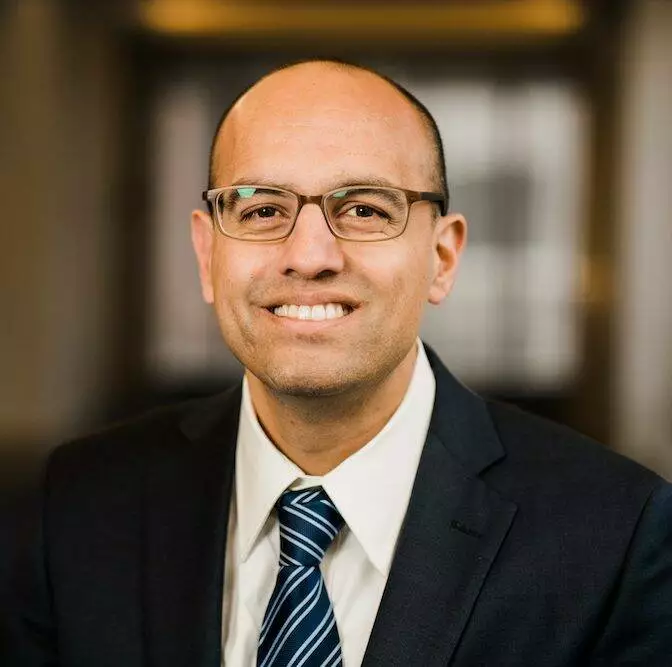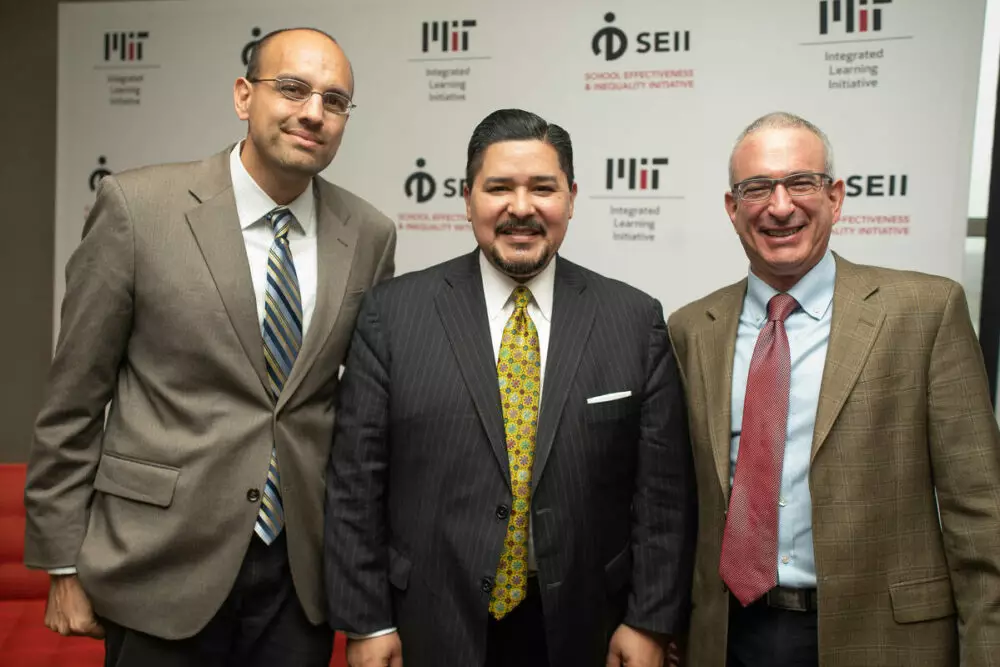Thank you for a great 2018! This year, MIT Blueprint Labs researchers contributed to a deeper understanding of topics such as school vouchers, automation, measures of school quality, charter schools, and more. Here are a few highlights:
In a timely examination of school vouchers, Blueprint Director Parag Pathak and Faculty Affiliates Atila Abdulkadiroğlu and Christopher Walters evaluate the Louisiana Scholarship Program, a program designed to provide disadvantaged students access to private schools. The paper finds that the use of these vouchers substantially reduce academic achievement.
Taking on questions of automation, artificial intelligence, and the future of the economy, Blueprint Co-director David Autor and Anna Salomons examine the effects of automation on labor outputs. They find that automation has not reduced the number of jobs, but it has reduced the share of national income allocated to wages.
Blueprint researchers also published working papers that evaluate measures of school quality, effects of charter school expansions, the impact of summer STEM programs, and school admissions decisions in Taiwan.
Our team received several honors from the academic community this year. Parag Pathak was awarded the prestigious John Bates Clark Medal for his contributions to market design and education policy. Joshua Angrist received the Eugene Fama Prize for his influential textbook Mostly Harmless Econometrics, authored with Jorn-Steffen Pischke. David Autor was appointed a MIT MacVicar Faculty Fellow for his contributions to undergraduate education.
Finally, the organization expanded its outreach to school districts and policymakers, hosting the first MIT School Access and Quality Summit in November 2018. The event brought together researchers and decision-makers in K-12 education for conversations about how to measure school quality and improve access to high-quality public schools.
The entire Blueprint Labs team thanks you for your continued interest and engagement as we continue our work in 2019!
|
Josh Angrist |
Parag Pathak |
David Autor |
Please note: Prior to July 2021, Blueprint Labs was named the School Effectiveness and Inequality Initiative (SEII). Mentions of SEII have been edited to reflect our new name.
Abdulkadiroglu, Atila, Parag Pathak, and Christopher Walters. “Free to Choose: Can School Choice Reduce Student Achievement?“ American Economic Journal: Applied Economics, January 2018, 10(1): 175-206.
Autor, David and Anna Salomons. “Is Automation Labor-Displacing? Productivity Growth, Employment, and the Labor Share.” Brookings Papers on Economic Activity, February 2018.
Abdulkadiroglu, Atila, Joshua Angrist, Yusuke Narita, and Parag Pathak. “Impact Evaluation in Matching Markets with General Tie-Breaking.“ NBER Working Paper 24172.
Cohodes, Sarah, Elizabeth Setren, and Christopher Walters. “Can Successful Schools Replicate Scaling Up Boston’s Charter School Sector.“ SEII Discussion Paper #2016.06.
Ridley, Matthew and Camille Terrier. “Fiscal and Education Spillovers from Charter School Expansion.” Blueprint Discussion Paper #2018.02.
Robles, Sylvia. “The Impact of a STEM-Focused Summer Program on College and Major Choices Among Underserved High-Achievers.” Blueprint Discussion Paper #2018.03.
Dur, Umut, Parag Pathak, Fei Song, and Tayfun Sonmez. “Deduction Dilemmas: The Taiwan Assignment Mechanism.“ NBER Working Paper 25024.
Benner, Meg and Ulrich Boser. “Expanding Access to High-Quality Schools.“ Center for American Progress, November 2018.

Parag Pathak, Blueprint Director
John Bates Clark Medal
The John Bates Clark Medal is awarded to the economist under the age of forty who is judged to have made the most significant contribution to economic thought and knowledge. Parag received this award for his work on market design and its application to education policy. Parag was also featured as one of the eight best young economists of the decade by the Economist in late 2018.

Joshua Angrist, Blueprint Director & Jorn-Steffen Pischke
Eugene Fama Prize
If you take a look at any economist’s bookshelf, chances are they’ll have a copy of Mostly Harmless Econometrics: An Empiricist’s Companion. Josh and Jorn were awarded Chicago Booth’s Eugene Fama prize for the book’s impact on doctoral education.

David Autor, Blueprint Co-director
MIT MacVicar Fellowship
When universities find a faculty member who excels at both teaching and research, it’s a win for the institution and the thousands of students who enroll in courses over that faculty’s tenure. Blueprint’s David Autor was awarded the MacVicar Faculty Fellowship for his outstanding contributions to undergraduate education, including exceptional teaching and mentoring.

Blueprint Labs and the MIT Integrated Learning Initiative (MITili) hosted the first MIT School Access and Quality Summit on November 13, 2018. This event was a unique opportunity for researchers and K-12 decision-makers to learn from one another. The event brought together 16 school districts, 24 research institutions, and 8 philanthropic organizations to review and discuss research and policy related to measuring school quality and improving access to high quality schools. The event featured a keynote by New York City Department of Education Chancellor Richard Carranza and included sessions by Blueprint Directors Parag Pathak and Joshua Angrist.
Blueprint Labs looks forward to continuing its ongoing studies on post-secondary scholarship programs, school quality measures, and innovations in school enrollment.
The organization will also continue to build and strengthen relationships with school districts in the coming year through events and outreach. Blueprint will launch a fellowship for school accountability and enrollment professionals in 2019.
You can catch some of the Blueprint team presenting at the Allied Social Science Associations (ASSA) conference in January! Here are the sessions and a link to the conference website with more information.
Blueprint Labs Presentation Schedule
January 4-6, 2019
Atlanta, GA
Session: Breaking Ties: Regression Discontinuity Meets Market Design
Date: Friday, January 4
Time: 2:30-4:30 PM
Session #1: AEA Richard T. Ely Lecture on Work of the Past, Work of the Future
Date: Friday, January 4
Time: 4:45 – 6:00 PM
Session #2: Gentrification and the Amenity Value of Crime Reductions: Evidence from Rent Deregulation
Date: Sunday, January 6
Time: 10:15 AM – 12:15 PM
Session: Fiscal and Education Spillovers from Charter Expansion
Date: Sunday, January 6
Time: 10:15-12:15 PM
Session: Can Successful Schools Replicate? Scaling Up Boston’s Charter School Sector
Date: Sunday, January 6
Time: 10:15 AM -12:15 PM
Subscribe for Updates